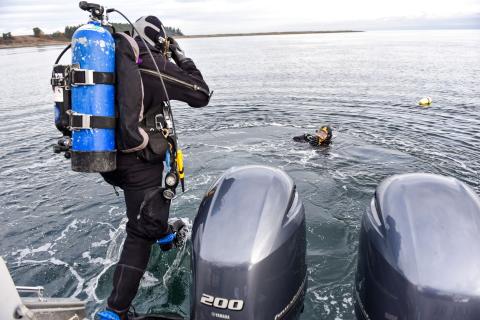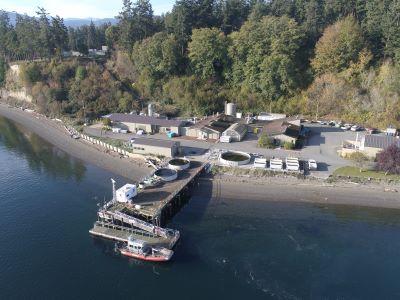Work With Us
Triton’s multidisciplinary expertise makes innovative marine energy research and environmental monitoring technology solutions possible. Our expertise includes:
- Field work and data collection and sensor deployment
- Ocean engineering
- Active and passive acoustics research and monitoring
- Experimental fluid dynamics
- Predictive modeling
- Artificial intelligence
- Science communication research and practice
- Access to a scientific dive team

The Triton Initiative is built on meaningful partnerships and collaborations with universities, other government agencies, developers, and regulators. Interested in working with us? Send inquiries to tritonmre@pnnl.gov.
Our Setting

The Triton Initiative is part of the Pacific Northwest National Laboratory (PNNL) Coastal Sciences Division, based at PNNL-Sequim. The Marine and Coastal Research Laboratory at PNNL-Sequim sits at the mouth of Sequim Bay on Washington’s Olympic Peninsula and links a small, relatively undisturbed embayment to the Strait of Juan de Fuca—the body of water separating the United States and Canada—to the Pacific Ocean.
PNNL maintains a variety of vessels, facilities, and equipment to enable research, provide a platform for development of instrumentation and data collection, and support software design and data analysis and the evaluation of potential impacts to marine systems.
